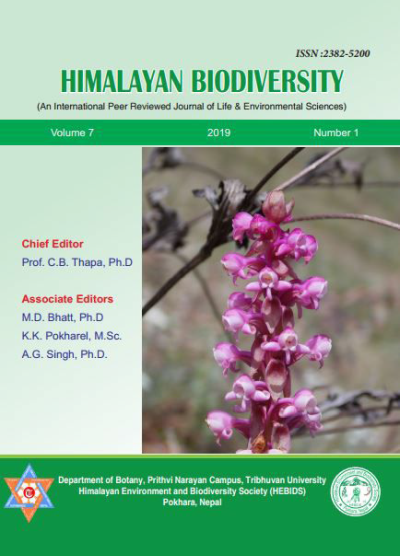Solid Waste Management: Challenges and Practices in the Nepalese Context
DOI:
https://doi.org/10.3126/hebids.v7i1.40185Keywords:
Environmental challenges, legislation, local government, municipal solid wasteAbstract
Municipal Solid Waste is one of the demanding environmental challenges faced by many municipalities in Nepal. Current practices and systems in Nepal being unable to deal with the increasing volumes of waste generated by an increasing urban population and its impact on the environment and public health. This paper reviewed the challenges, practices and discusses key policies, legislative and institutional provisions made by the government regarding solid waste management in Nepal. Both published and unpublished documents, reports; articles and books were collected, reviewed, and analyzed. The result shows that an appropriate legal provision including policy and strategic framework needs to be developed for three tiers of government such as federal, provincial, and local. The initiatives of local governments and the public could play a significant role in managing solid wastes. Thus, strengthening the capacity of local governments is indispensable, as primarily they are mandated to provide solid waste management. The public-private partnership offers opportunities for operational efficiency and cost-effectiveness. In summary, for the environment-friendly management of solid wastes, academia could contribute a supportive role in developing and reforming policy, strategy, and guidelines and, strengthening the capacity of concerns at all levels.
Downloads
Downloads
Published
How to Cite
Issue
Section
License
© Himalayan Environment and Biodiversity Society (HEBIDS)

